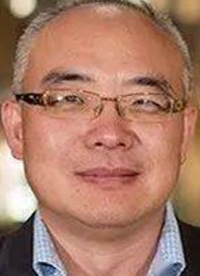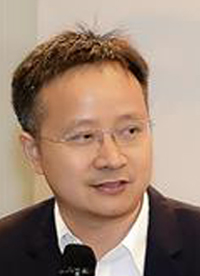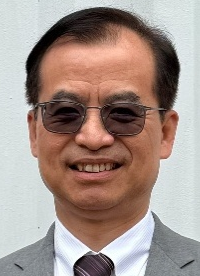
Prof. Zhaoyang DongCity University of Hong Kong, ChinaProf Z.Y. Dong is a Chair Professor and Head of Department of Electrical Engineering at City University of Hong Kong. His previous roles include Singapore Power Group Endowed Professor and Co-Director of SPG-NTU Joint Lab at Nanyang Technological University, Singapore; SHARP Professor of Energy System and Inaugrial Director of UNSW Digital Grid Futures Institute, the University of NSW, Australia; Director of ARC Research Hub for Integrated Energy Storage Systems; Head of School of Electrical & Information Engineering, The University of Sydney; and Ausgrid Chair Professor and Director of Ausgrid Centre for Intelligent Electricity Networks provided R&D support for the Smart Grid, Smart City national demonstration project of Australia. He also worked with industry as manager for power system planning with the transmission network service provider of TAS in Australia. Prof Dong's research interests include power system planning and stability, smart grid/micro grid, smart cities, renewable energy systems, energy storage systems, and energy market. He is a Fellow of IEEE and has held editorial roles for several IEEE Transactions and IET Journals. |
|
| Prof. Roc Xunpeng ShiUniversity of Technology Sydney, AustraliaXunpeng (Roc) Shi is a Professor of Energy and Environmental Economics and Sustainability at the University of Technology Sydney, as well as a Research Principal at its Australia-China Relations Institute. He is also the President of the International Society for Energy Transition Studies (ISETS), which boasts over 1,800 members from 80 countries. Currently, he serves as an advisor to UN ESCAP on the sustainable development of critical minerals, and he is an expert in the UN Secretary General’s Working Group on Transforming the Extractive Industries for Sustainable Development and frequently participates in the United Nations and other international policy debates. He is a Council Member (President, 2016-2018) of the Chinese Economics Society Australia (CESA). He was listed in 2020 as Australia's leading researcher in the field of Environmental Law and Policy, the top 2% of the world’s top scientists in the energy field, and the top 1% of authors in the world’s largest database of economists (RePEc). He has advised international organisations, including ADB, Global Gas Center (GGC), APEC Sustainable Energy Center (APSEC) and the International Group of LNG Importers (GIIGNL). |
Prof. Chung-Jen TsengNational Central University, TaiwanProfessor Chung-Jen Tseng received his Ph.D. degree in Mechanical Engineering from The University of Texas at Austin (U.S.A.). He received NEDO Fellowship from the Japanese government and worked on hydrogen energy in Yokohama for three years. Dr. Tseng is now a Distinguished Professor in the Department of Mechanical Engineering and the Director of the Center for Energy Research of National Central University. Professor Tseng also serves the Chair of the Hydrogen Energy and Fuel Cell Subcommittee of the National Standards Technical Committees of Taiwan and a Section Editor of the Journal of Energy Engineering. He is a former President of the Taiwan Association for Hydrogen Energy and Fuel Cells. He received the 2024 Outstanding Research Award and Future Tech Award from the National Science and Technology Council of Taiwan. His current research interest is in energy conversion and storage, such as fuel cell (PEM & SOFC) material development, innovative fuel cell and stack design, hybrid system analysis and design, and hydrogen production by water electrolysis. |
|


